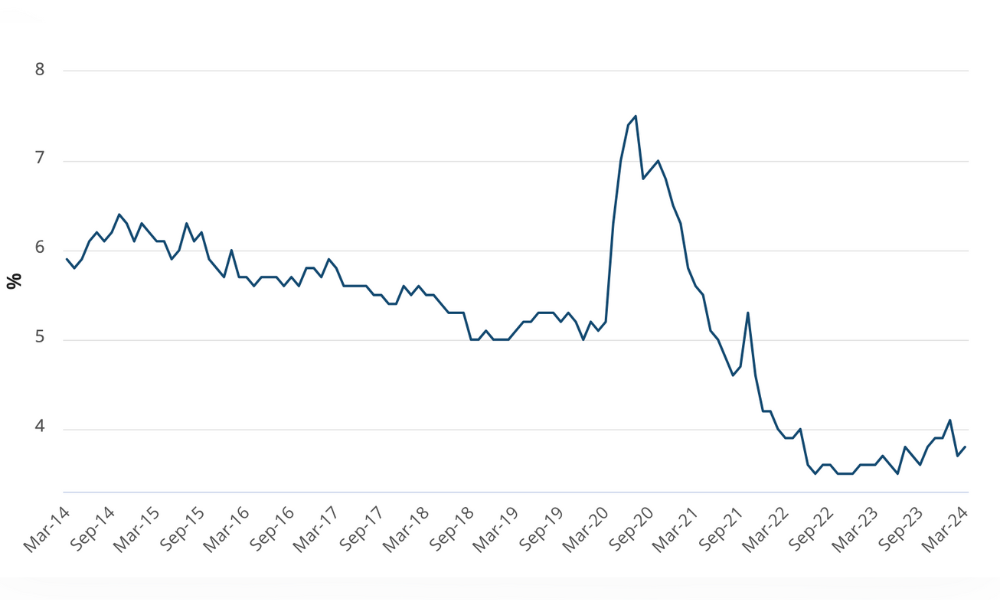‘Leaders in a pandemic have to do the forward-thinking for everyone which can mean making unpopular decisions’

Businesses should focus, not on what’s changing, but rather what remains - the importance of people and trust, according to Sally Kirkright, CEO AccessEAP.
In fact, according to the Young Presidents’ Organization (YPO) global research, 96% of CEOs say building and maintaining trust with stakeholders is a top priority.
The New Normal has become the holy grail of business as workplaces try to navigate the “unprecedented changes” caused by COVID-19.
According to Kirkright, leaders need to forget “The New Normal”, but rather adjust to “The New Abnormal” we are currently in.
This presents the question, ‘how do we traverse this new, constantly shifting territory?’ Leading employer assistance program provider, AccessEAP, believes that the answer is to nail the basics.
Kirkright offers the following advice on how to move through ‘The New Abnormal’:
Resilience and accountability
A good place to start is by looking at how the business can understand and support employees to take accountability for and build their own resilience.
Change is challenging, especially when it brings prolonged isolation, financial stress and, for those front-line workers, fear of contracting COVID-19. With one in five Australians already vulnerable to mental health issues, a leader’s first priority should be to strengthen their own and their teams’ ability to cope with our current reality.
This behaviour starts at the top. Leaders in a pandemic have to do the forward-thinking for everyone which can mean making unpopular decisions.
Read more: Should employers rely on COVID-19 home test kits?
It’s important for leaders to look after their own psychological health and acknowledge that they won’t be able to please all of the people all of the time.
However, focusing on physical and mental wellbeing, while earning trust and communicating clearly will help managers empower their team and ultimately the business to effectively manage the abnormal.
An example of this is the way leaders respond to "the emotional wave" experienced by many employees as they return to workplaces. This ranges from happiness from social interaction with peers, to anxiety over health concerns.
To manage employees effectively, the new abnormal now entails balancing a blended workforce for the first time, with some people operating at home and others back in the workplace.
It’s important to let people choose their own way of coping by segmenting teams and rostering days on site. Provide opt-in for those who can’t wait to be back and connect to their co-workers, while supporting those who needed to be back but had concerns for their health.
Clarity not certainty
For most, survival planning in a pandemic was never part of workplace strategy - it was forced upon business. Due to this, it’s important for leaders to communicate the "why" at each step.
The YPO research on building trust with stakeholders found that 42% of CEOs believed it was important to communicate regularly and 35% that leaders should be transparent and honest. It’s important therefore to calmly and confidentially provide clarity.
While leading through uncertainty, its necessary to adapt with expert advice (WHO, federal and state governments, etc.) and transparently talk to the facts to gain employees’ trust and let them know that the business is looking out for them. In return they’ll be motivated to ensure the survival of the business.
Connection
There’s an abnormal number of competing priorities to staying afloat in these turbulent times, so it’s easy as a leader to become siloed and not gather feedback or listen.
These very strange times have highlighted just how important it is to connect with other CEO's and leaders to understand they am not alone and learn from each other. Many employers are adapting to similar challenges, so getting insights from the people with similar goals will inform different approaches for leaders and advice to give to employers.
Read more: Returning to a safe and healthy workplace
In the workplace connection is just as important, not only for sharing ideas but for building the culture, which is what will ultimately see a business through hard times.
Those that have invested in culture and set up avenues of support for mental wellbeing such as an EAP service have, in general, coped more efficiently. These tactics are not a quick fix, but are part of a genuine ‘always on’ efforts to support employees.
By building trust and focusing on people and culture, leaders will put themselves and their businesses in the best position to cope with the constant changes of “The New Abnormal” that will unfold in the coming months and years.








